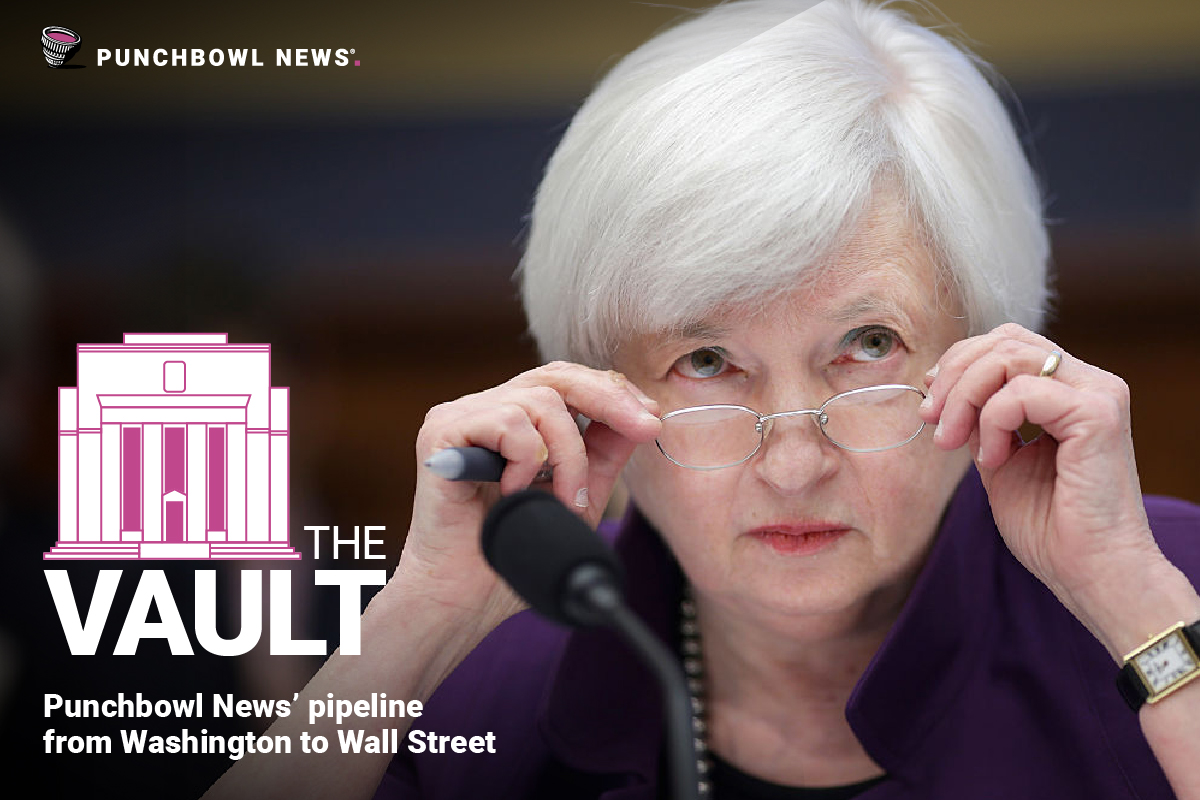More than two years into her job as the Biden administration’s top economic official, Treasury Secretary Janet Yellen must now contend with a House transformed partly by the election of the most conservative speaker in recent memory.
The relationship between Yellen and Speaker Mike Johnson is not off to a banger start.
News: Yellen said she hasn’t spoken to Johnson since he was elected six weeks ago. With all that’s happening in the U.S. economy and abroad, this is a bit of a shocker.
Moreover, the most notable legislative strategy Johnson has employed to date — tying Israel aid to IRS funding cuts — prompted swift condemnation from Yellen in a November address.
“His role is key, and we want to work with him to make sure we deliver for hardworking families,” Yellen told us, referring to Johnson. “I would, however, say that the one thing I was aware of that he did propose, which was cutting funding for the IRS, I would strongly object to. It’s very dangerous.”
Yellen might have the most jam-packed portfolio across all of the Biden administration. The wars raging abroad have only complicated the mix.
Yellen has the unenviable job of securing funds for Ukraine and the Middle East conflict, implementing historic climate and infrastructure investments and reopening economic talks with China. Not to mention, she’s also trying to sell President Joe Biden’s economic agenda to a persistently skeptical public.
A longtime public servant and former chair of the Federal Reserve, Yellen is well-positioned to navigate these challenges. But Congress has not made her job any easier, especially lately.
Ukraine aid: Treasury has directed a full-court press toward Congress in the hopes of shoring up political support for another multi-billion dollar supplemental request for Ukraine.
“They’re bracing for a long winter,” Yellen said of Ukraine. “And this is support that is critical for them to be able to continue to be engaged in the war effort.”
But Yellen’s push comes as support for the war is waning among Republicans. Throughout our conversation, Yellen pointed out that the United States was “not doing this alone,” citing a broad international coalition sending money to Ukraine.
We asked Yellen whether she was concerned this latest supplemental request for Ukraine could be the last Congress approves – if lawmakers can pass it at all. She replied:
For Yellen, the goal is to send “critical” funding for broader economic aid, not just military backing.
“Ukraine is currently spending every penny or more that it takes in revenue for military purposes, to support its war effort,” Yellen said. “So we’re filling in money that they need for government functions like hospitals, first responders, school teachers.”
The deficit: Yellen acknowledged a shifting financial environment could force policymakers to grapple with the economic effects of the United States’ $33 trillion national debt more quickly.
Interest rates are up. And recent stress in the bond market, coupled with yields near historic highs, has left policymakers wondering whether federal payments on U.S. debt could soon introduce a real drag to the economy’s long-term growth. The United States spent $659 billion on bondholder payments in FY2023, nearly double FY2020’s total of $345 billion.
Yellen argued the Biden administration is taking the deficit seriously, citing budget proposals that would reduce the deficit by a few trillion dollars over the next 10 years.
But also she said a persistent elevation in interest rates would create “a somewhat greater challenge” for policymakers.
“Additional deficit reduction is appropriate,” Yellen said. “The president has proposed that and would stand ready to work with Congress to look for ways to enact that.”
Stablecoins: Yellen echoed concerns from congressional Democrats about one of the key planks of House Republicans’ approach to crypto reform. For years now, the Treasury secretary has asked Congress to pass legislation regulating stablecoins, arguing the product could pose unique financial stability risks.
But Yellen told us it was vital for the federal government to play an oversight role. The Republican approach would limit the Federal Reserve’s direct supervision over state-chartered stablecoin companies.
“It’s critical that the federal government essentially has a role in providing a floor for what is an acceptable state of regulation with respect to stablecoins. I’m not comfortable with the idea of only state regulation and no federal role,” Yellen said.
Lawmakers supportive of the House’s stablecoin bill say it introduces a federal floor. But opponents have argued there are outstanding questions about how those standards would be enforced by state authorities.
Big fiscal: Debt concerns notwithstanding, Yellen said she was increasingly sure the Biden administration’s “go big” fiscal response to the pandemic was the right approach.
There’s been a lot of debate in Washington about whether federal spending in 2020 and 2021 fueled inflation in 2022. Yellen thinks recent economic developments are evidence that inflation was truly transitory.
Yellen told us she believed the American Rescue Plan was the correct response and that the recent dropoff in inflation figures has made her “feel more confident” about that assessment.





